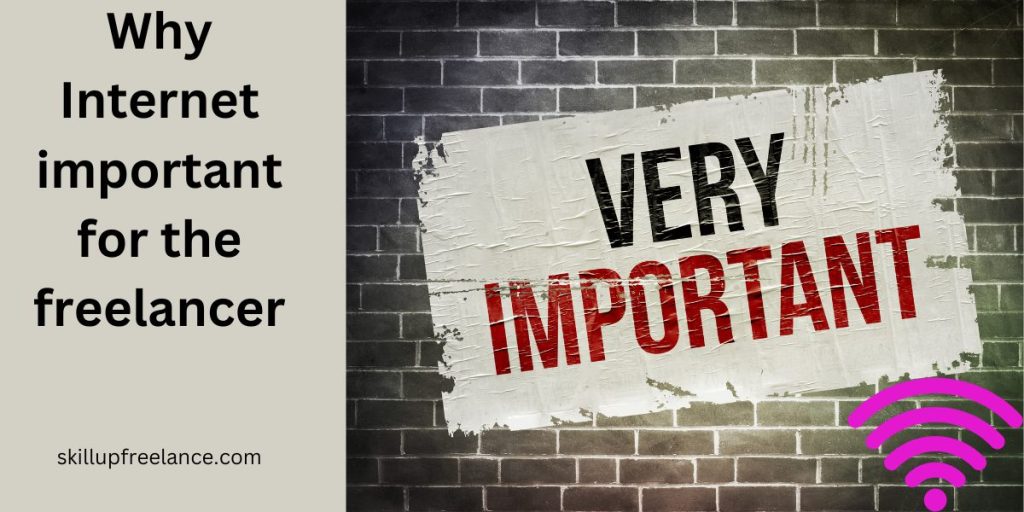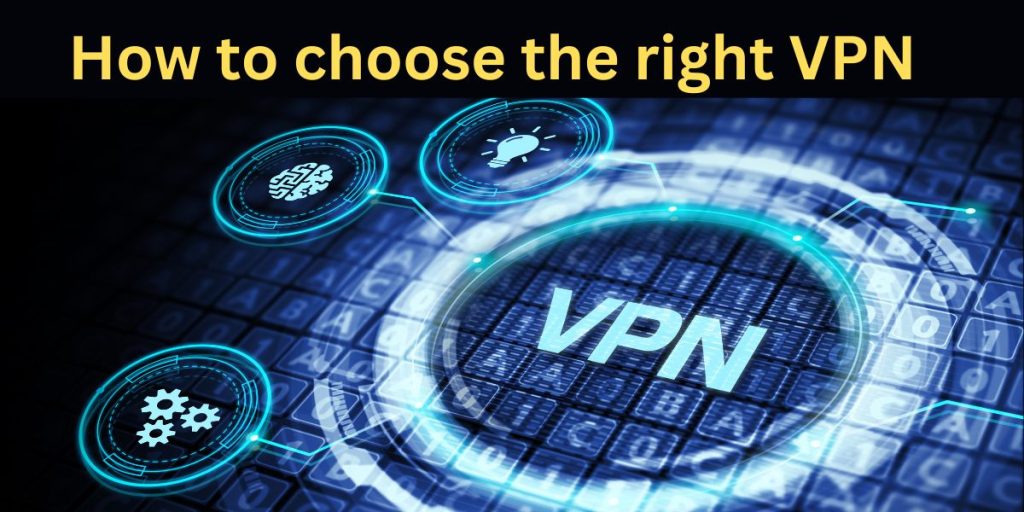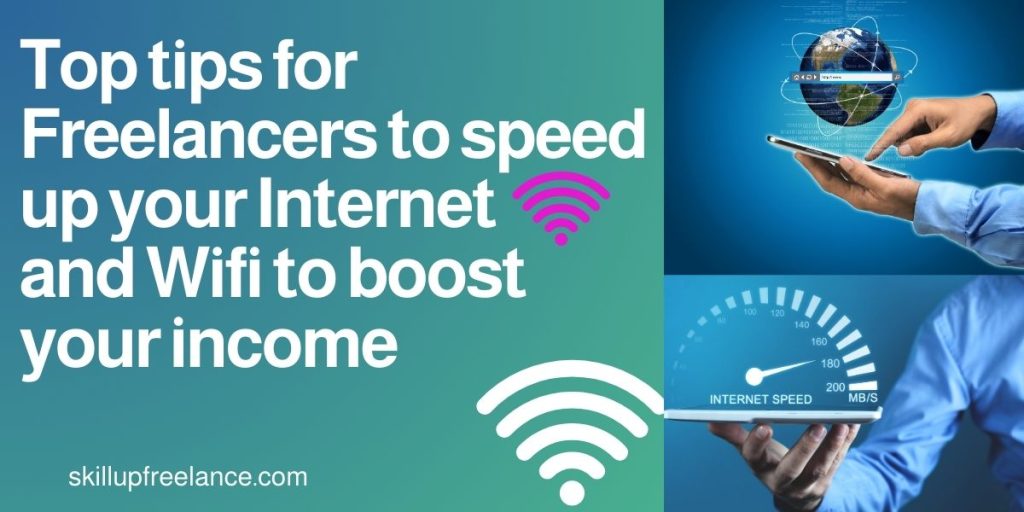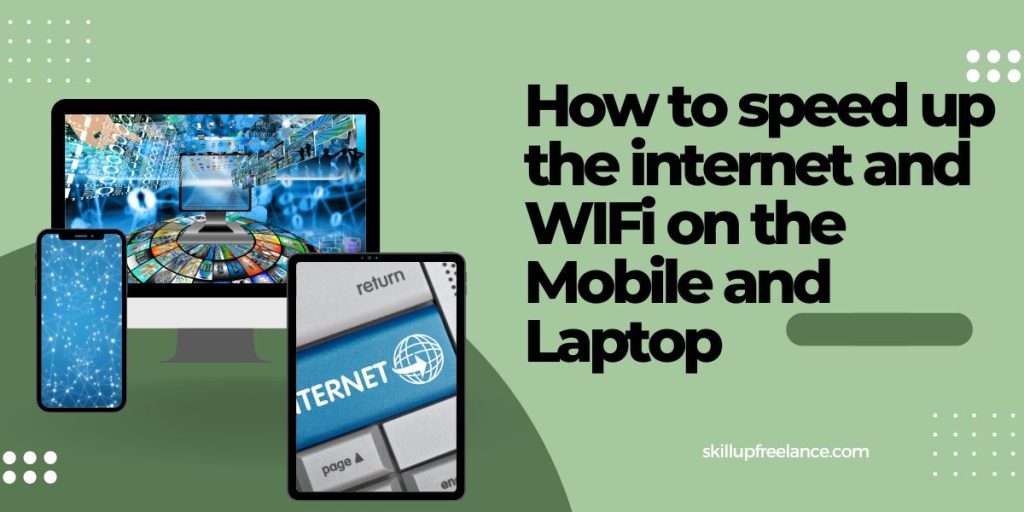Maximize Your Freelancing Potential: Essential Tips for High-Speed Internet and VPN Use
Introduction
In today’s fast-paced digital world, freelancers rely heavily on stable and fast internet connections to meet deadlines, collaborate with clients, and stay productive. However, slow internet can be a frustrating roadblock, especially when you’re working remotely.
A Virtual Private Network (VPN) might just be the tool you need—not only for enhanced security but also for optimizing your internet speed. This article dives into essential tips to help freelancers unlock their internet’s full potential with the help of a VPN. From understanding how VPNs bypass throttling to choosing the right server locations, these strategies ensure you enjoy seamless online performance, no matter where you work. Whether you’re streaming, uploading large files, or simply browsing, these tips will empower you to work smarter and faster.

The Importance of Fast Internet for Freelancers
Productivity
For freelancers, productivity is directly tied to the speed and reliability of their internet connection. Tasks such as video conferencing, file sharing, and online research all require a stable and fast internet connection. A slow connection can lead to delays, misunderstandings, and even lost opportunities. By ensuring your internet is up to speed, you can complete tasks more quickly and efficiently, leaving more time for other important aspects of your business.
Collaboration
Freelancers often need to collaborate with clients or other freelancers in real time to increase our freelance earning. Tools like Google Drive, Slack, and Zoom are invaluable for this purpose, but they require a strong internet connection to function effectively. A fast and reliable internet connection ensures that you can share files, communicate via video calls, and collaborate on documents without any interruptions, leading to smoother and more successful collaborations.
Client Satisfaction
Your internet speed can directly impact your client’s satisfaction. In today’s competitive freelance market, meeting deadlines and maintaining clear communication are key to retaining clients. Slow internet can cause delays in project delivery and communication, potentially damaging your professional reputation. By investing in a faster internet connection, you can ensure that you consistently meet your clients’ expectations, leading to higher satisfaction and more repeat business. Learn about SEO guide more from here.
Understanding VPNs and Their Benefits
What is a VPN?
A Virtual Private Network (VPN) is a tool that provides a secure connection over the internet. It creates a private, encrypted tunnel between your device and the internet, protecting your data from prying eyes. VPNs are especially important for freelancers who often work with sensitive client information or need to access restricted content from different regions.
Security
As a freelancer, safeguarding your data is crucial. A VPN secures your internet activity by encrypting your data, making it extremely difficult for hackers to access your information. This is particularly important when using public WiFi networks, which are notoriously insecure. By using a VPN, you can ensure that your data remains private and secure, protecting both your business and your clients.
Privacy
In addition to security, a VPN also provides privacy by masking your IP address. This safeguards your online privacy by preventing websites and online services from monitoring your digital footprint. For freelancers who value their privacy, a VPN is an essential tool. Whether you’re browsing, downloading, or communicating with clients, a VPN ensures that your activities remain private and anonymous.
Geo-Restrictions
Freelancers often need to access content that is restricted to certain regions. A VPN safeguards your online activities through data encryption, rendering it highly challenging for hackers to obtain your sensitive information. This can be especially useful for freelancers working with international clients or those who need to access region-specific content for research or project purposes.

Choosing the Right VPN
Key Factors
Choosing the right VPN involves carefully evaluating several key factors.
- Speed: An effective VPN should have little to no effect on your internet speed. Look for a VPN provider that offers fast and stable connections.
- Security Features: Ensure that the VPN offers strong encryption, a no-logs policy, and additional security features such as a kill switch.
- Pricing: Consider your budget. While there are many free VPNs present, they often come with limitations. Investing in a reputable paid VPN can provide better security and speed.
- Compatibility: Make sure the VPN is compatible with all your devices, whether you’re using a laptop, mobile, or tablet.
Recommended VPNs
Based on speed, security, and pricing, here are a few VPNs that are well-suited for freelancers:
- NordVPN: Known for its robust security features and fast speeds, NordVPN is a great choice for freelancers who prioritize both security and performance.
- ExpressVPN: Another top choice, ExpressVPN offers excellent speed and a user-friendly interface, making it ideal for freelancers who need a reliable VPN for everyday use.
- CyberGhost: CyberGhost is a budget-friendly option that doesn’t compromise on speed or security. It’s perfect for freelancers who need a cost-effective solution.

Tips for Optimizing Internet Speed
Hardware Upgrades
One of the most effective ways to boost your internet speed is by upgrading your hardware. Here are a few tips:
- Upgrade Your Router: An outdated router can be a significant bottleneck in your internet speed. Consider upgrading to a modern router that supports the latest WiFi standards, such as WiFi 6. These routers provide faster speeds, better range, and can handle more devices simultaneously.
- Use a Wired Connection: For tasks that require the highest speed and reliability, such as large file transfers or streaming, consider using an Ethernet cable instead of WiFi. Wired connections generally provide quicker and more stable speeds than their wireless counterparts.
- Optimize Router Placement: The location of your router can affect your WiFi signal strength. Place your router in a central location, away from walls, metal objects, and other electronics that could interfere with the signal. Elevating the router off the floor can also help improve coverage.
Software Optimization
In addition to hardware upgrades, you can also optimize your software settings to improve your internet speed:
- Update Firmware: Ensure that your router’s firmware is up to date. Regular updates from manufacturers can enhance performance and strengthen security.
- Limit Background Apps: On both your mobile and PC, background apps and services can consume bandwidth, slowing down your internet. Shut down unused applications and reduce the number of devices linked to your network.
- Use Quality of Service (QoS) Settings: Most contemporary routers come equipped with Quality of Service (QoS) features that enable you to prioritize specific types of internet traffic. For example, you can prioritize video conferencing or file uploads over less important tasks like background downloads.
- Clear Browser Cache: Over time, your web browser can accumulate a lot of cache and cookies, which can slow down your browsing speed. Regularly clearing your cache can help improve your internet speed.
Network Management
Managing your network effectively can also contribute to faster internet speeds:
- Use a Guest Network: If you frequently have guests or other people connecting to your network, set up a guest network. This separates their traffic from yours and can help maintain your own connection speed.
- Monitor Bandwidth Usage: Some devices and apps can consume a large amount of bandwidth. Use your router’s admin panel or a network monitoring tool to identify and manage these devices.
- Restart Your Router Regularly: Restarting your router can help clear out memory leaks, refresh connections, and improve speed. A weekly reboot is often recommended for optimal performance. Position your router in a central area, keeping it clear of walls, metal items, and other electronic devices that might disrupt the signal.

How to Speed Up Your Internet on Mobile and PC
Mobile Optimization Tips
In today’s fast-paced world, freelancers often find themselves working remotely or on the go. Having a fast and reliable mobile internet connection is crucial for maintaining productivity. Here are some actionable tips to optimize your mobile internet speed:
Enable Data Saver Mode: Most smartphones have a data saver mode that helps reduce background data usage. By enabling this feature, you can prioritize bandwidth for the apps you need while limiting unnecessary data consumption.
Switch to a Faster Network: If you’re in an area with poor 4G or 5G coverage, look for other networks or WiFi options. Some mobile networks offer carrier aggregation, which combines multiple frequency bands for faster speeds. Switching to a different network can make a significant difference in connectivity.
Optimize APN Settings: Adjusting your Access Point Name (APN) settings can enhance your mobile internet speed. Check with your mobile carrier for the optimal APN settings and ensure your device is configured correctly.
Use a Mobile Signal Booster: If you frequently work in areas with weak signal strength, consider investing in a mobile signal booster. These devices amplify the cellular signal, helping you maintain a stable and faster connection even in challenging environments.
PC Optimization Tips
Boosting internet speed on your PC is essential for tasks that require a lot of data, like video editing or large file transfers. Here are some tips:
- Disable Unnecessary Startup Programs: Many programs start automatically when your computer boots up, consuming memory and internet bandwidth. Disable unnecessary startup programs to free up resources.
- Adjust Windows Update Settings: Windows 10 often downloads updates in the background, which can slow down your internet. Adjust your update settings to schedule downloads during off-peak hours.
- Use Ethernet: If you’re using a desktop or laptop with an Ethernet port, connecting directly to your router via an Ethernet cable can significantly improve your internet speed.
- Optimize DNS Settings: Changing your DNS server to a faster one (like Google DNS or OpenDNS) can improve the time it takes to load web pages.
Internet Speed Test: How to Check Your Connection
Fast Speed Test Tools
Before implementing any adjustments, it’s crucial to understand your existing internet speed. Here are some reliable tools to test your internet speed:
- Ookla Speedtest: One of the most popular tools, Ookla provides a comprehensive speed test that measures download, upload, and ping.
- com: Powered by Netflix, Fast.com offers a simple and quick way to check your download speed.
- Google Speed Test: You can simply type “internet speed test” into Google, and it will provide a quick and accurate speed test directly from your browser.
Regularly testing your internet speed can help you identify issues and track improvements as you optimize your connection.
Troubleshooting Common Internet Issues
Despite having a solid internet setup, freelancers may still encounter connectivity problems. Here are some common issues and troubleshooting methods to help you resolve them quickly:
Slow Internet Speeds: If your internet speed is slower than expected, try these steps:
- Restart Your Device: A simple reboot can often resolve temporary connectivity issues.
- Check for Bandwidth Hogs: Use your device’s settings or a network monitoring tool to identify any applications or devices consuming excessive bandwidth. Limit or disconnect unnecessary devices from your network.
Frequent Disconnections: If your connection keeps dropping, consider the following:
- Router Placement: Ensure your router is placed in a central location, away from walls and obstructions. Elevate the router to improve signal coverage.
- Update Firmware: Check for firmware updates for your router.
Limited Connectivity on Specific Devices: If one device struggles to connect while others work fine, try these steps:
- Forget and Reconnect: Forget the WiFi network on the problematic device and reconnect by entering the password again.
- Reset Network Settings: On your device, resetting the network settings can clear any misconfigurations that may be causing connectivity issues.
How to Get Faster Internet for Free
Improving your internet speed doesn’t always require spending money. Here are some free methods to boost your connection:
- Adjust Router Settings: Access your router’s settings through your web browser and experiment with different configurations, like changing the channel to avoid interference from nearby networks.
- Use Ad Blockers: Ads consume bandwidth and can slow down your browsing speed. Install an ad blocker to reduce data usage and speed up page loading times.
- Reduce Connected Devices: The more devices connected to your network, the slower your internet speed. Disconnect devices that not in use.
- Use a Lightweight Browser: Some web browsers, like Opera or Brave, are designed to use less data and run faster on slower connections.
| VPN Name | Link |
|---|---|
| NordVPN | https://nordvpn.com |
| ExpressVPN | https://www.expressvpn.com |
| CyberGhost | https://www.cyberghostvpn.com |
| Surfshark | https://surfshark.com |
| PIA VPN | https://www.privateinternetaccess.com |
FAQ 1: How can I check my internet speed?
Answer: You can easily test your internet speed using online tools like Ookla Speedtest, Fast.com, or the Google Speed Test. These tools measure your download and upload speeds as well as your ping, helping you determine if your internet connection is performing as expected.
FAQ 2: Will using a VPN slow down my internet connection?
Answer: While a VPN can slightly reduce your internet speed due to encryption overhead and the distance to the VPN server, choosing a reputable VPN with high-speed servers can minimize this impact. For the best results, connect to a server that is geographically close to your location.
FAQ 3: What are some free ways to improve my internet speed?
Answer: There are several free methods to boost your internet speed:
- Adjust your router settings by changing the WiFi channel to reduce interference.
- Limit background apps and devices that are using bandwidth.
- Clear browser cache and use ad blockers to reduce data usage.
FAQ 4: How do I improve mobile internet speed on my Android device?
Answer: To speed up mobile internet on your Android device, try the following:
- Enable Data Saver Mode to limit background data usage.
- Clear app cache to free up memory and improve performance.
- Update your apps and system software for better efficiency.
- Switch to a faster network or adjust your APN settings for optimal performance.
FAQ 5: How do I choose the right VPN for my freelance work?
Answer: When selecting a VPN, consider factors such as speed, security features, compatibility, and pricing. Look for a VPN that offers strong encryption, a no-logs policy, and fast servers to ensure that your internet speed remains high while protecting your data. If you want to explore the freelancing guide click the link.
Conclusion
Fast and reliable internet, along with a secure VPN, is essential for freelancers striving to succeed in a competitive landscape. By following the tips outlined in this article, you can significantly improve your internet speed and enhance your productivity, ensure client satisfaction, and protect your sensitive information.
Call to Action
Don’t let slow internet and security concerns hinder your freelance journey. Take action today! Evaluate your current internet setup, invest in a reliable VPN, and apply the optimization techniques discussed to experience a noticeable improvement in your work efficiency. Share your experiences and results in the comments below, and join our community of freelancers dedicated to achieving success together!